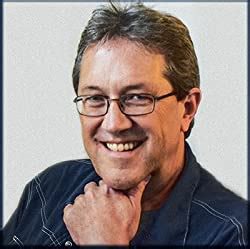A Quote by Murray Bookchin
I find it perfectly consistent for libertarians to operate on the municipal or county level, where they are close to the people and where they may have a party or a federation that is made up of the social institutions, the residual social institutions that still remain, over and beyond what the State has managed to preempt and absorb.
Related Quotes
The State is a professional apparatus that sets itself apart from the people and apart from the institutions that the people themselves create. It's a monopoly on violence that manages and institutionalizes social activities. The people are perfectly capable of managing themselves and creating their own institutions.
Local assemblies of the people constitute the strength of free nations. Municipal institutions are to liberty what primary schools are to science: they bring it within the people's reach, and teach them how to use and enjoy it. A nation may establish a system of free government, but without the spirit of municipal institutions it cannot have the spirit of liberty.
It has been difficult for [young people in the U.S.] to connect the dots between rising tuition costs and other assaults on their dignity with the ongoing assault on public life and its myriad democratic institutions. Today's generation faces an enormous battle in turning back the current assaults on the social state, higher education, and the social good.
Human social life, I suggest, is the magma that erupts and builds up, so to speak, at the fault lines where natural human capacities meet and grind against and over natural human limitations…. This meeting of powers and limitations produces a creative, dynamic tension and energy that generates and fuels the making of human social life and social structures…. It is real human persons living through the tensions of natural existential contradictions who construct patterned social meanings, interactions, institutions, and structures.
A living system continually re-creates itself. But how this occurs in social systems such as global institutions depends on our level of awareness, both individually and collectively... As long as our thinking is governed by industrial, "machine age" metaphors such as control, predicatbility, and "faster is better", we will continue to re-create institutions as we have, despite their increasing disharmony with the larger world.
John Stuart Mill believed that the only acceptable reason for government to limit a person's liberty was to prevent him from causing unacceptable harm to others. Mill was not a libertarian, but many libertarians are quick to cite this principle when arguing against a regulation that they oppose. And I believe most thoughtful libertarians are prepared to embrace something fairly close to Mill's harm principle. But accepting that principle implies accepting many of the institutions of the modern welfare state that libertarians have vigorously opposed in the past, such as safety regulation.
There is no reason to accept the doctrines crafted to sustain power and privilege, or to believe that we are constrained by mysterious and unknown social laws. These are simply decisions made within institutions that are subject to human will and that must face the test of legitimacy. And if they do not meet the test, they can be replaced by other institutions that are more free and more just, as has happened often in the past.


































